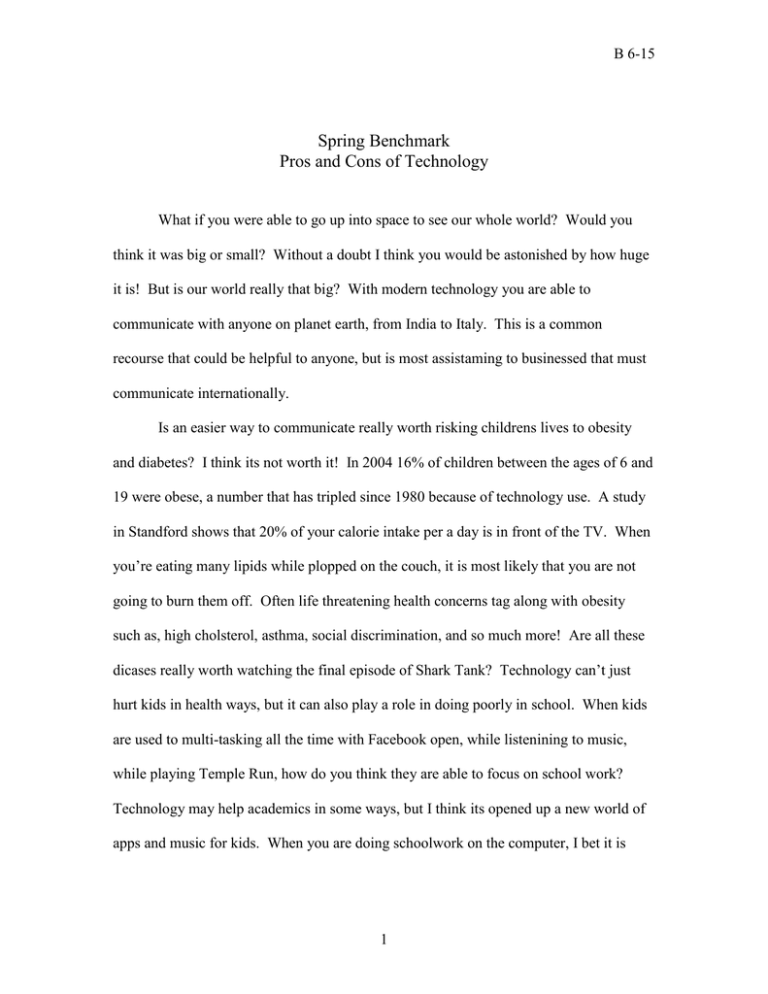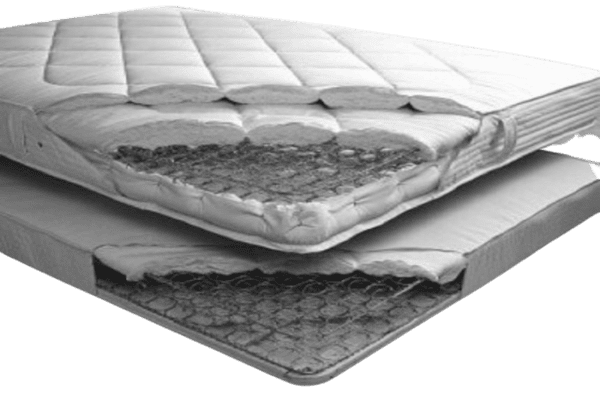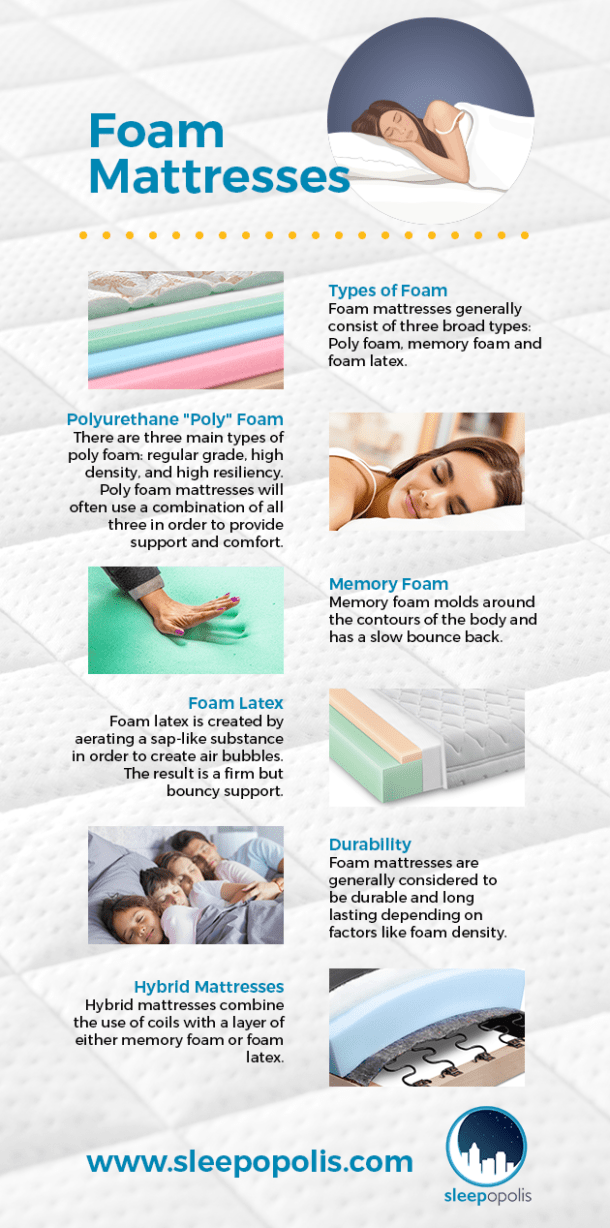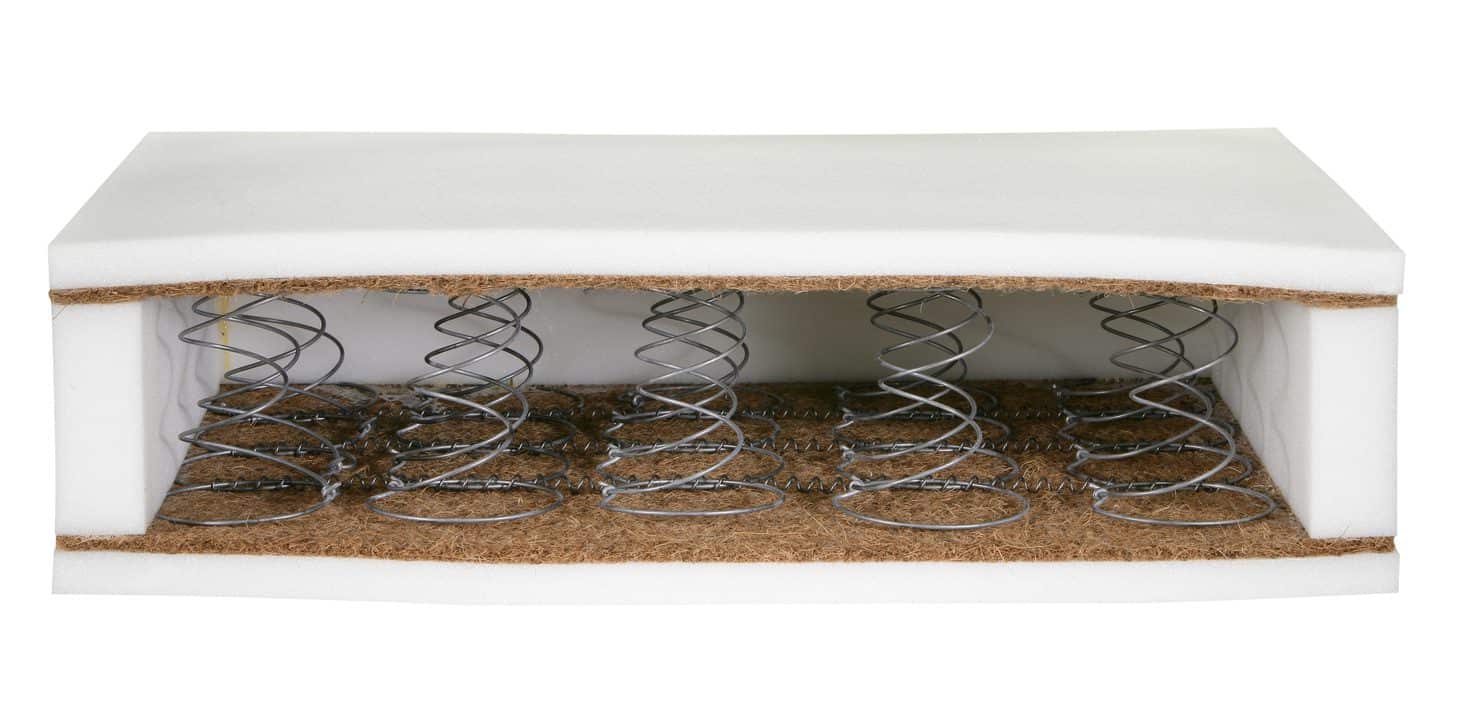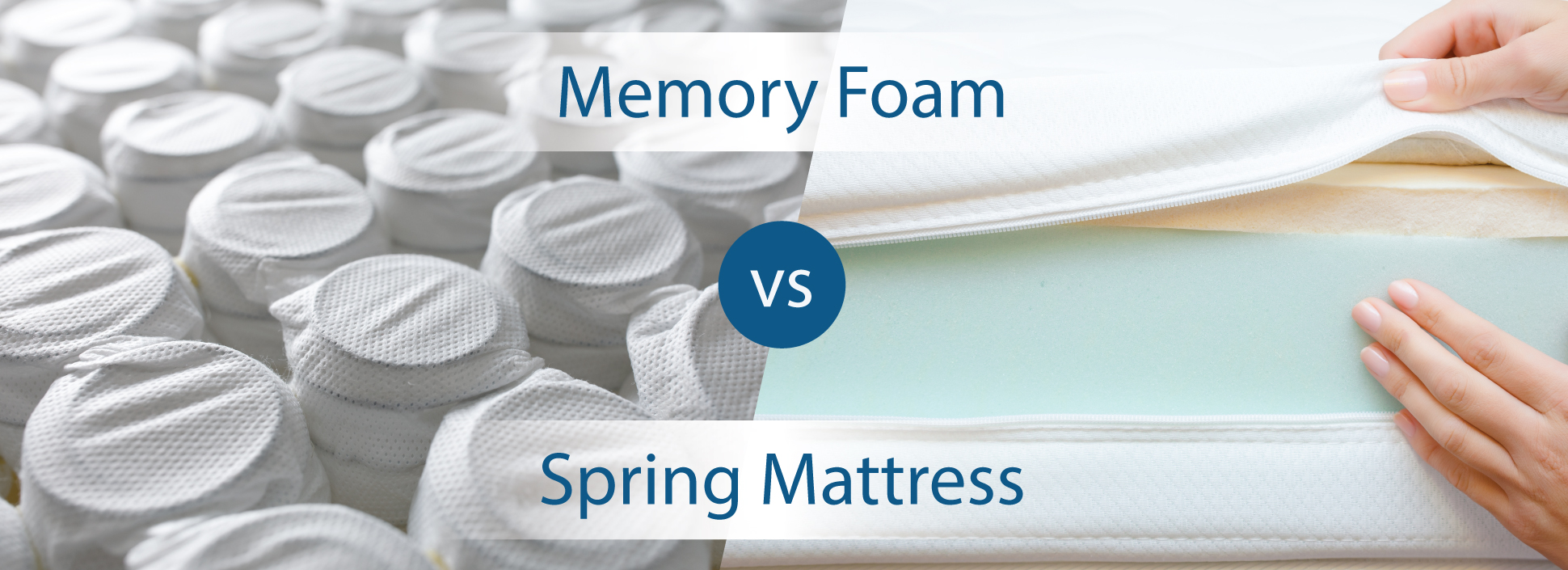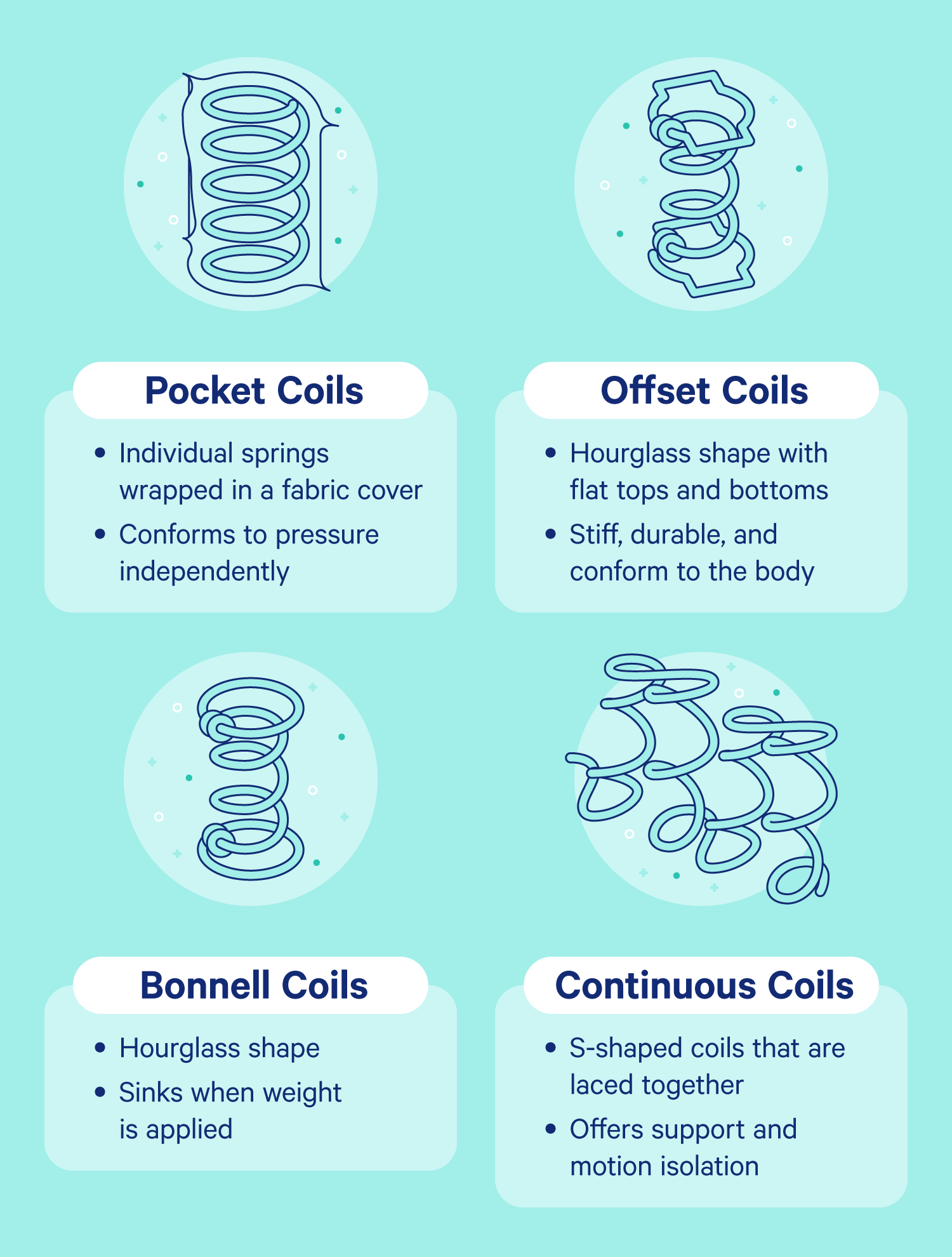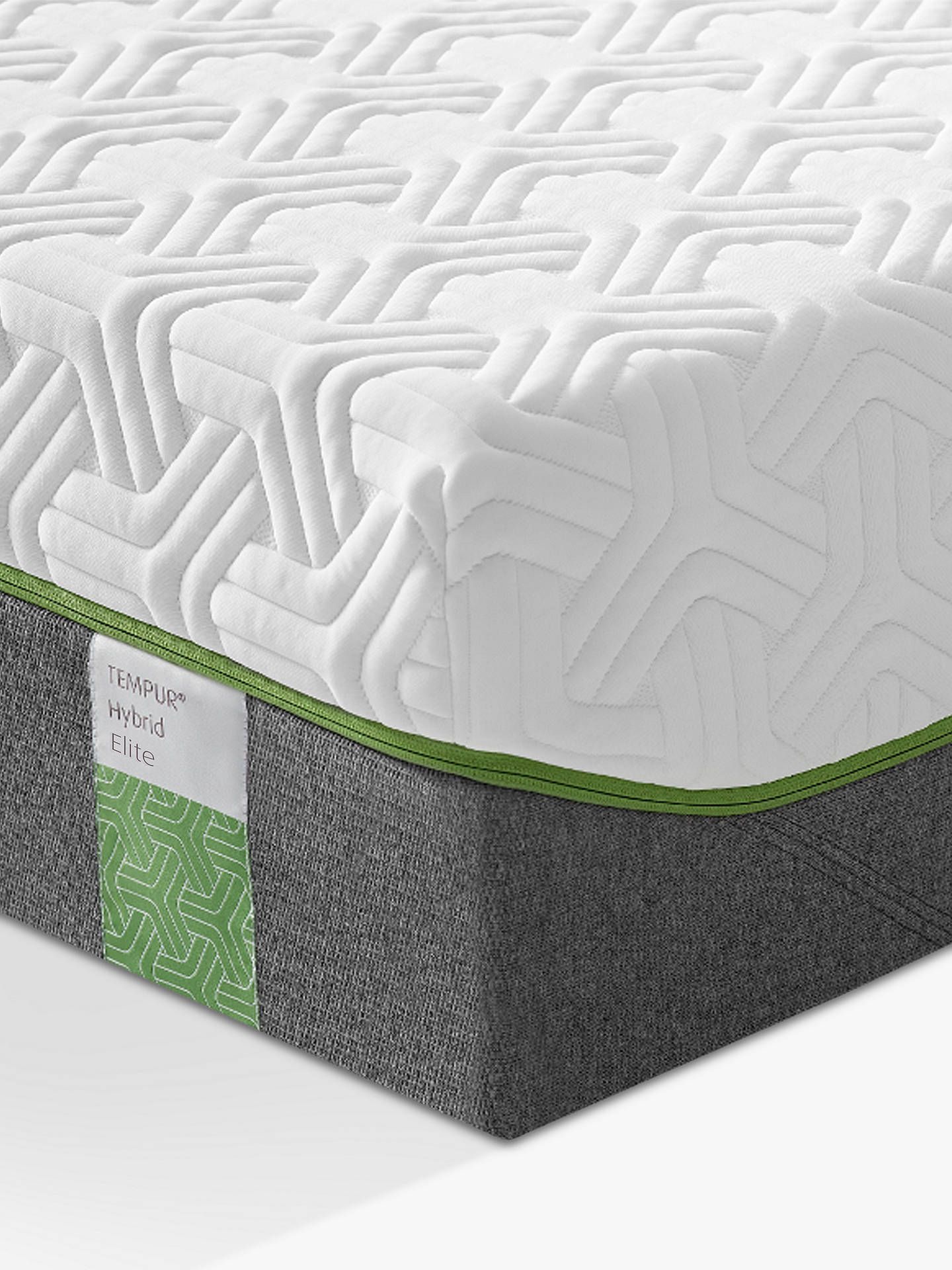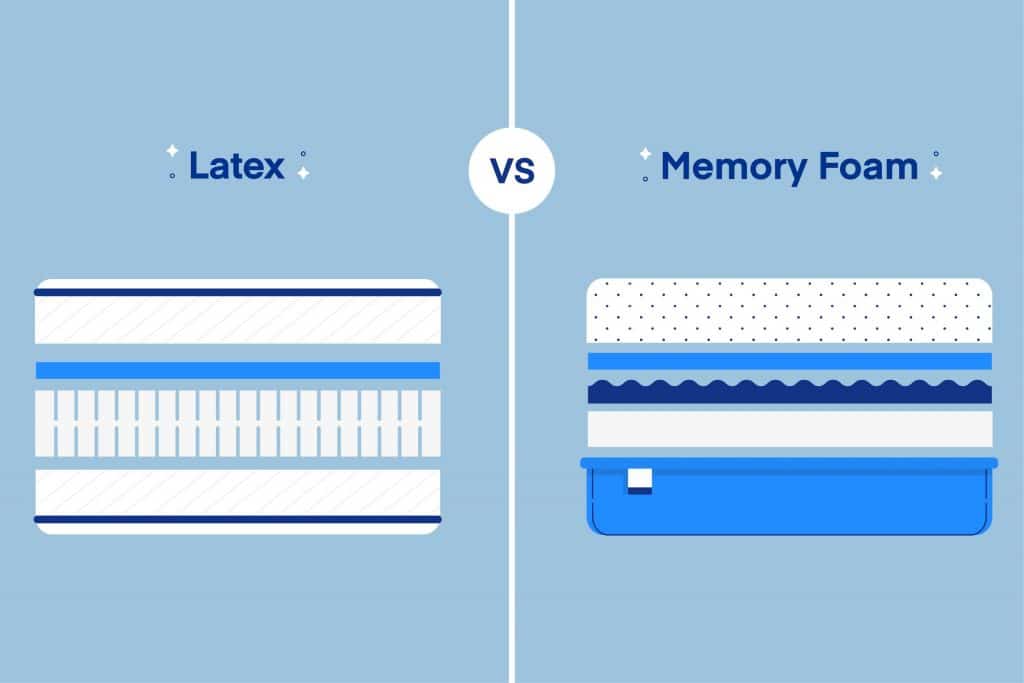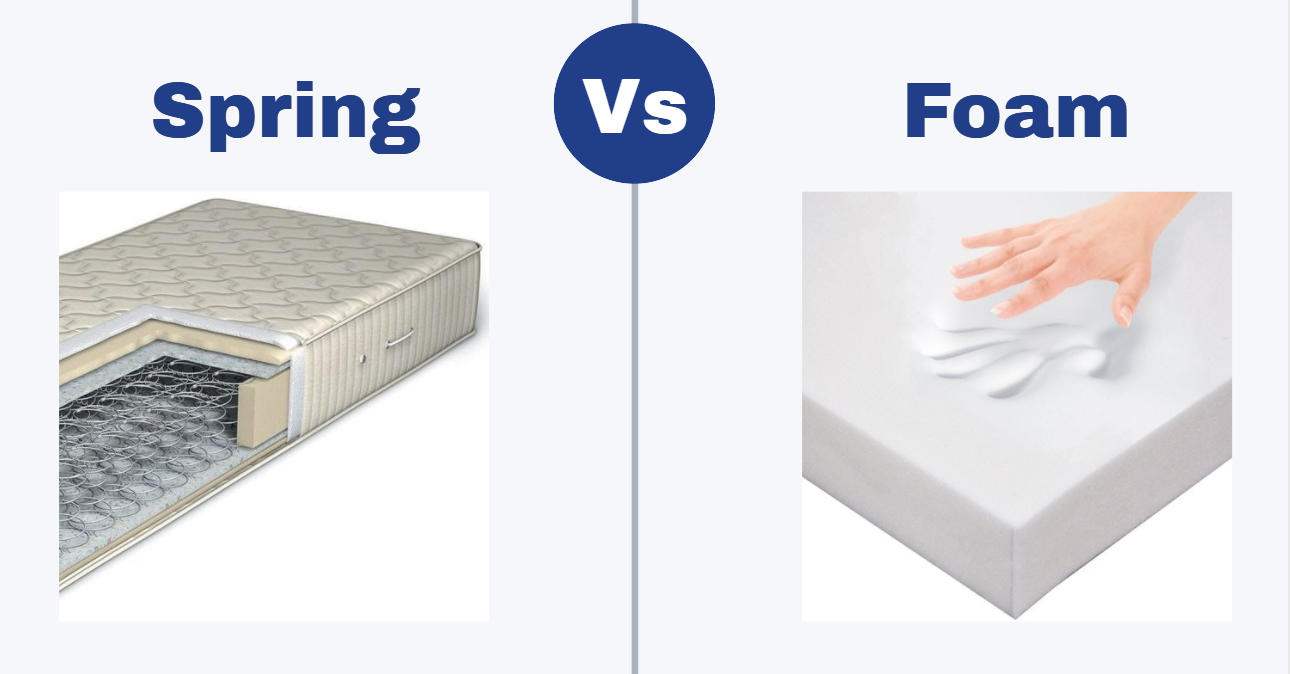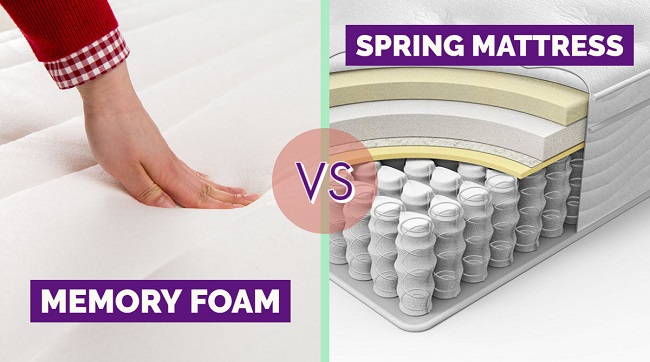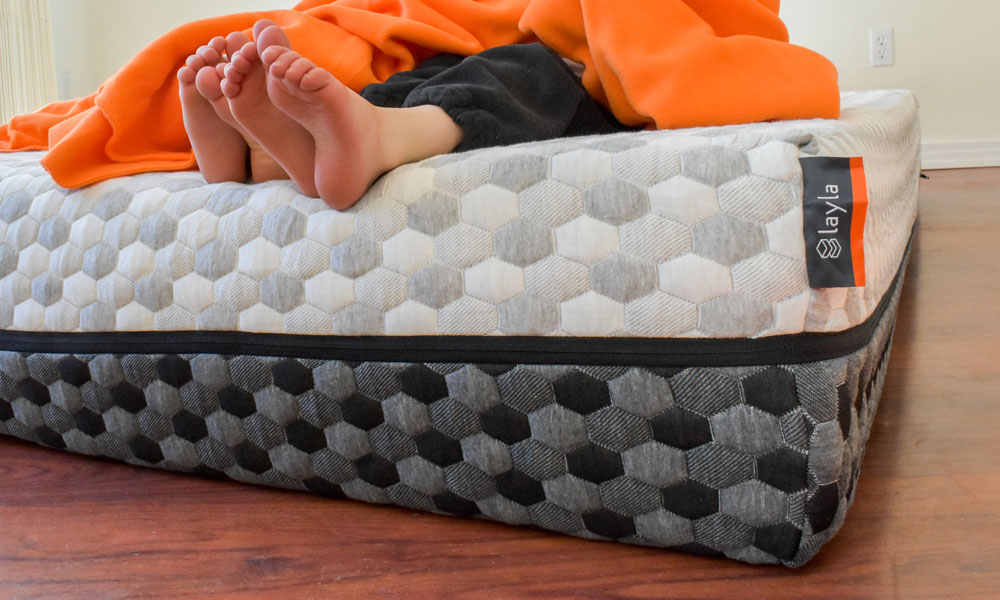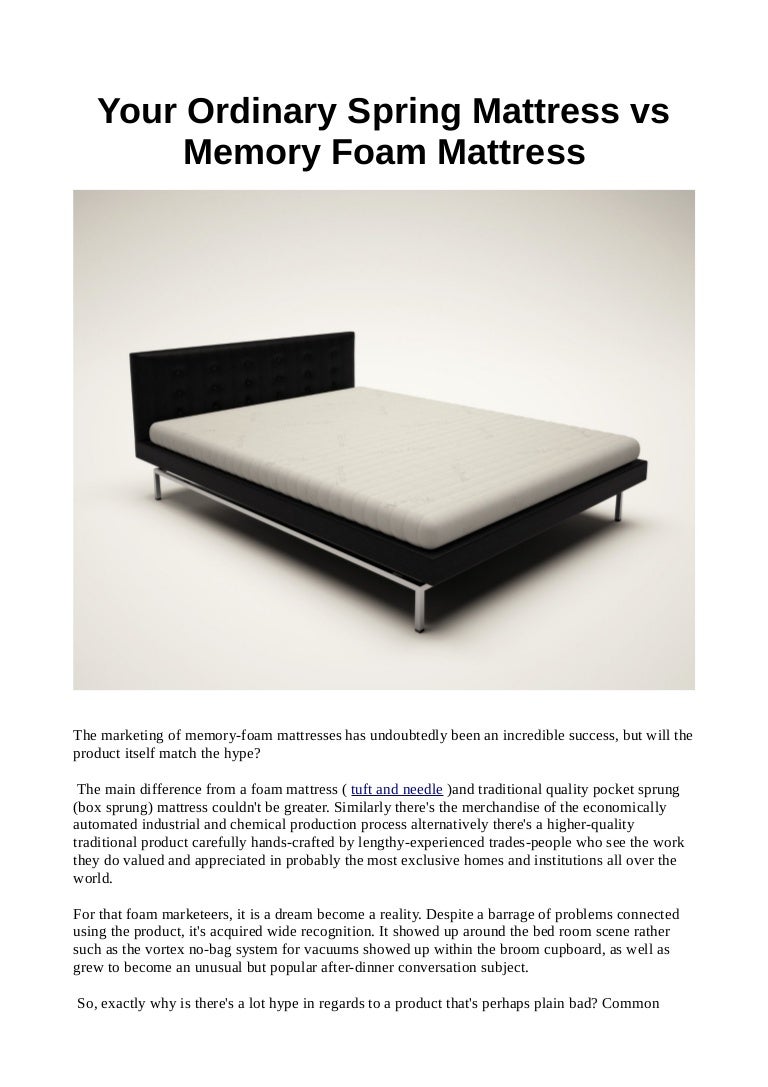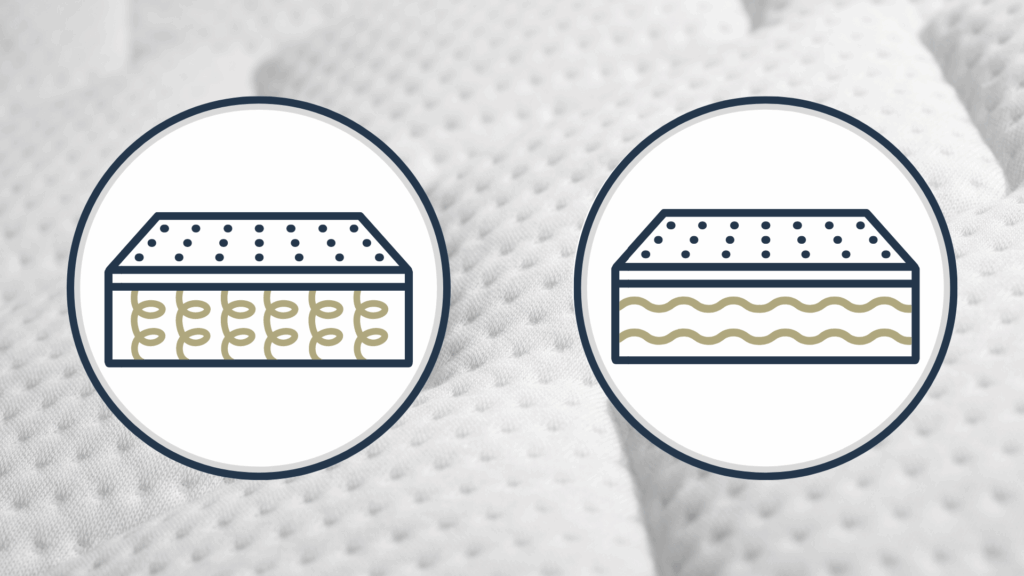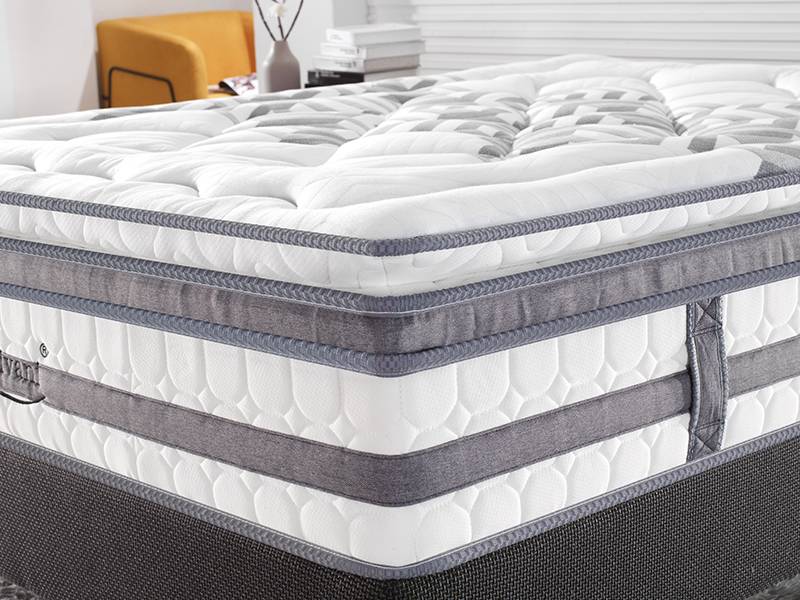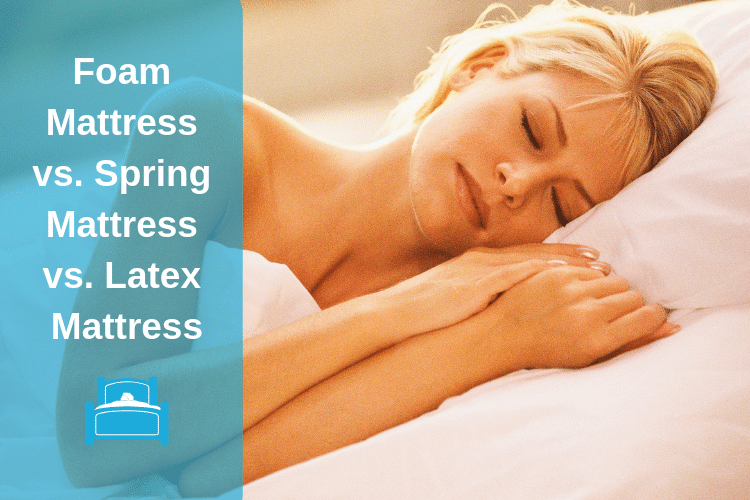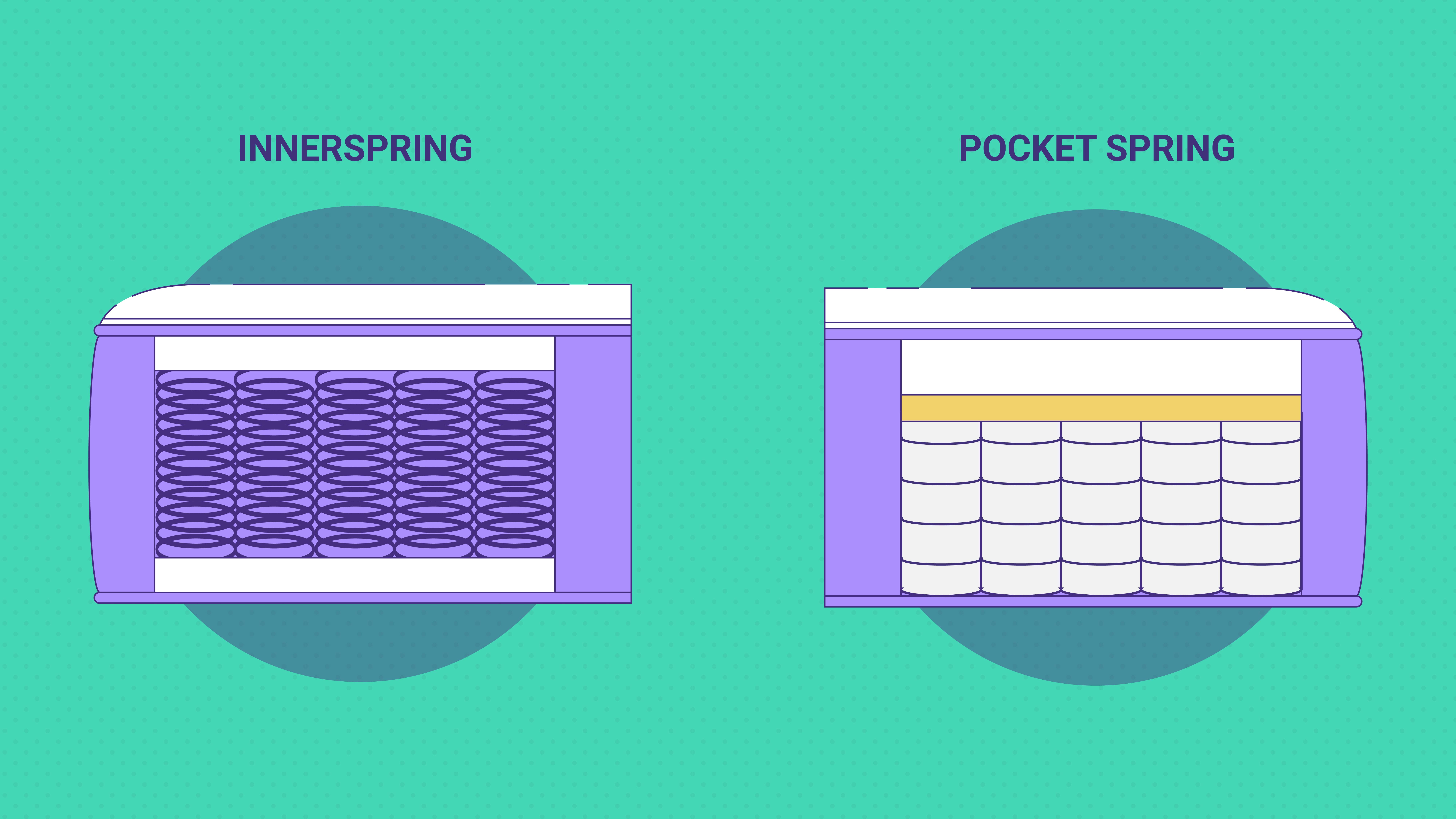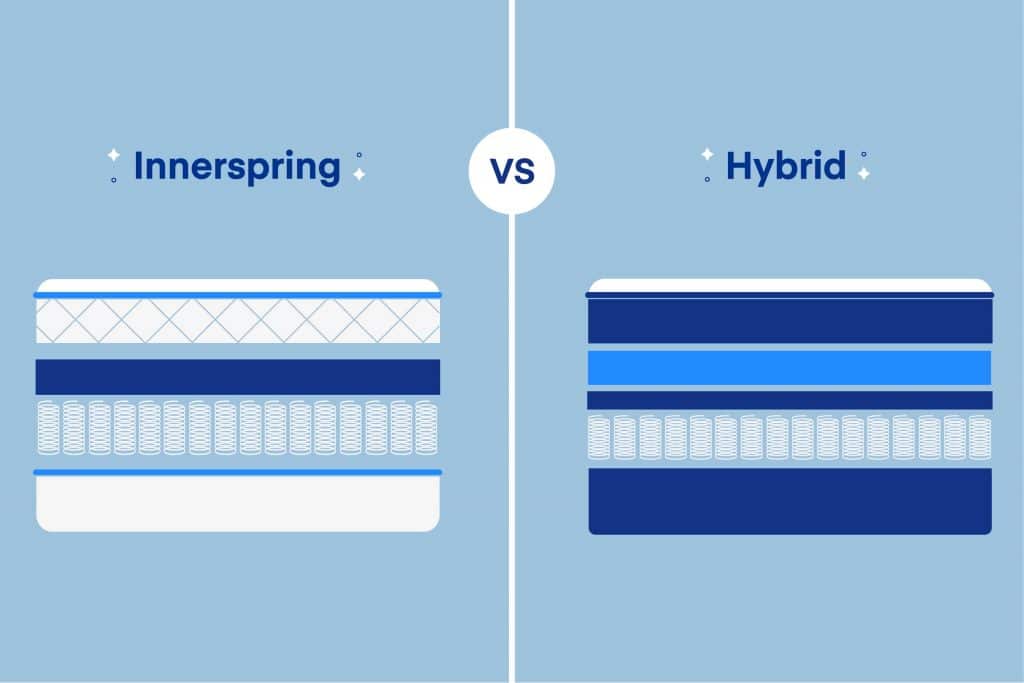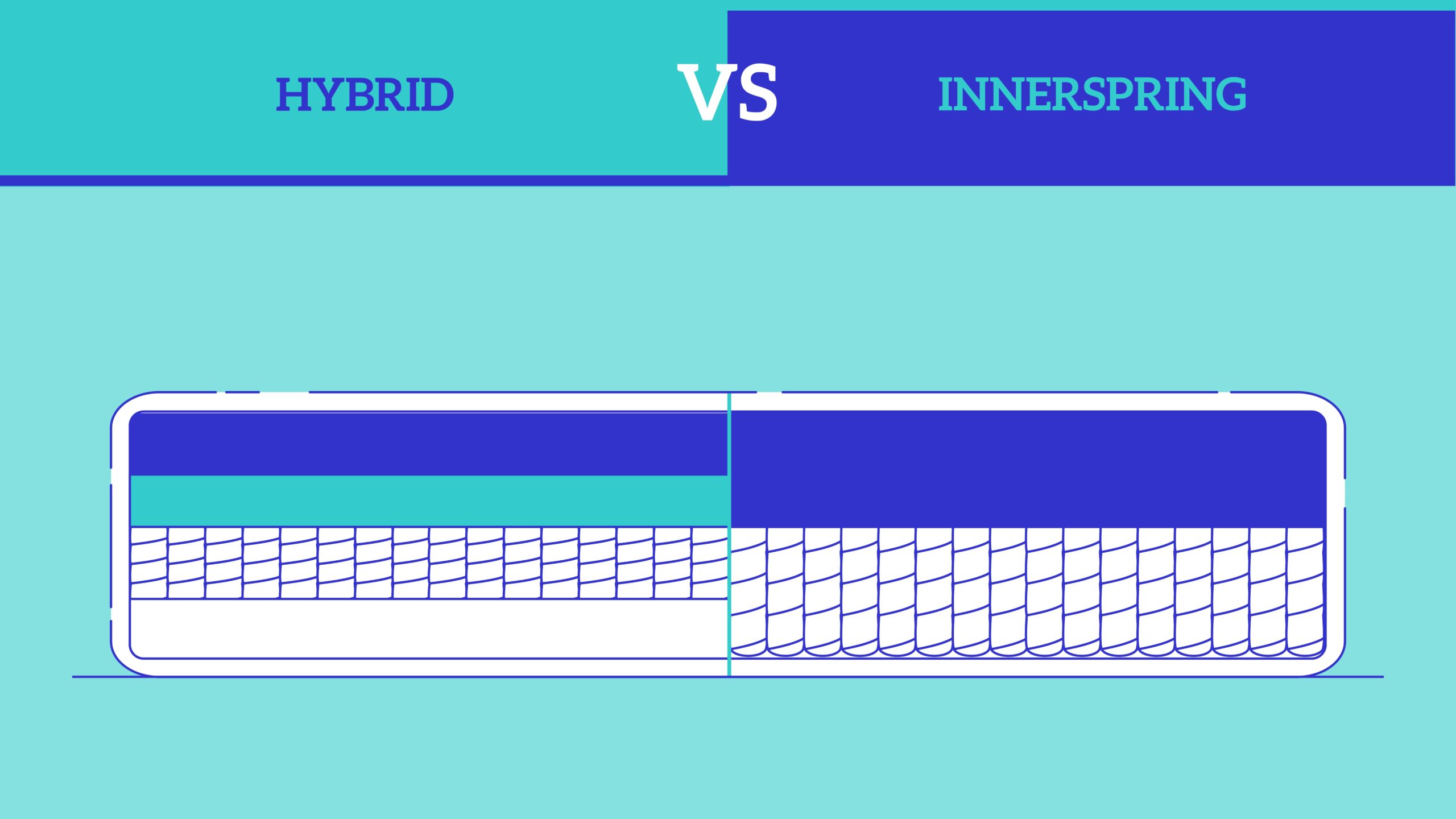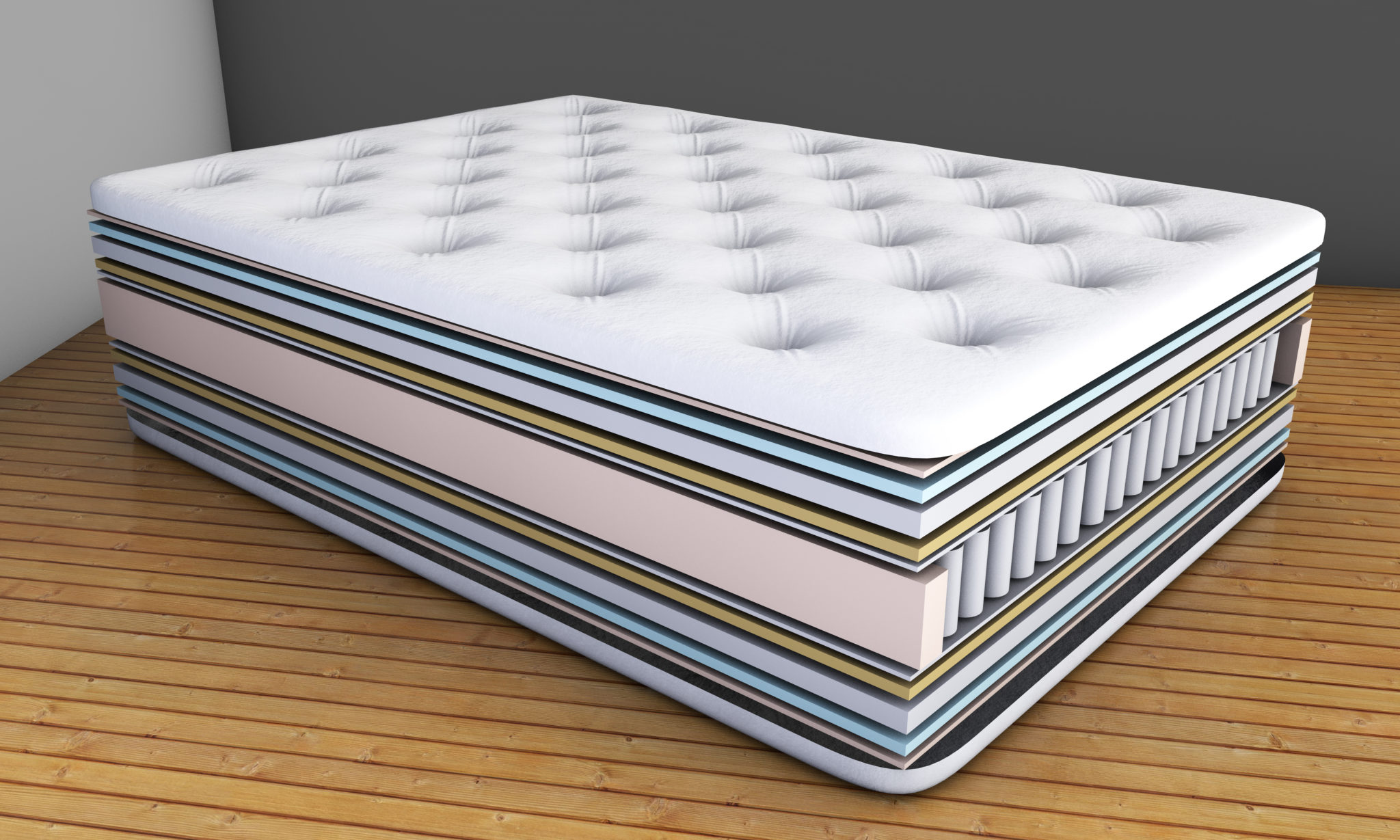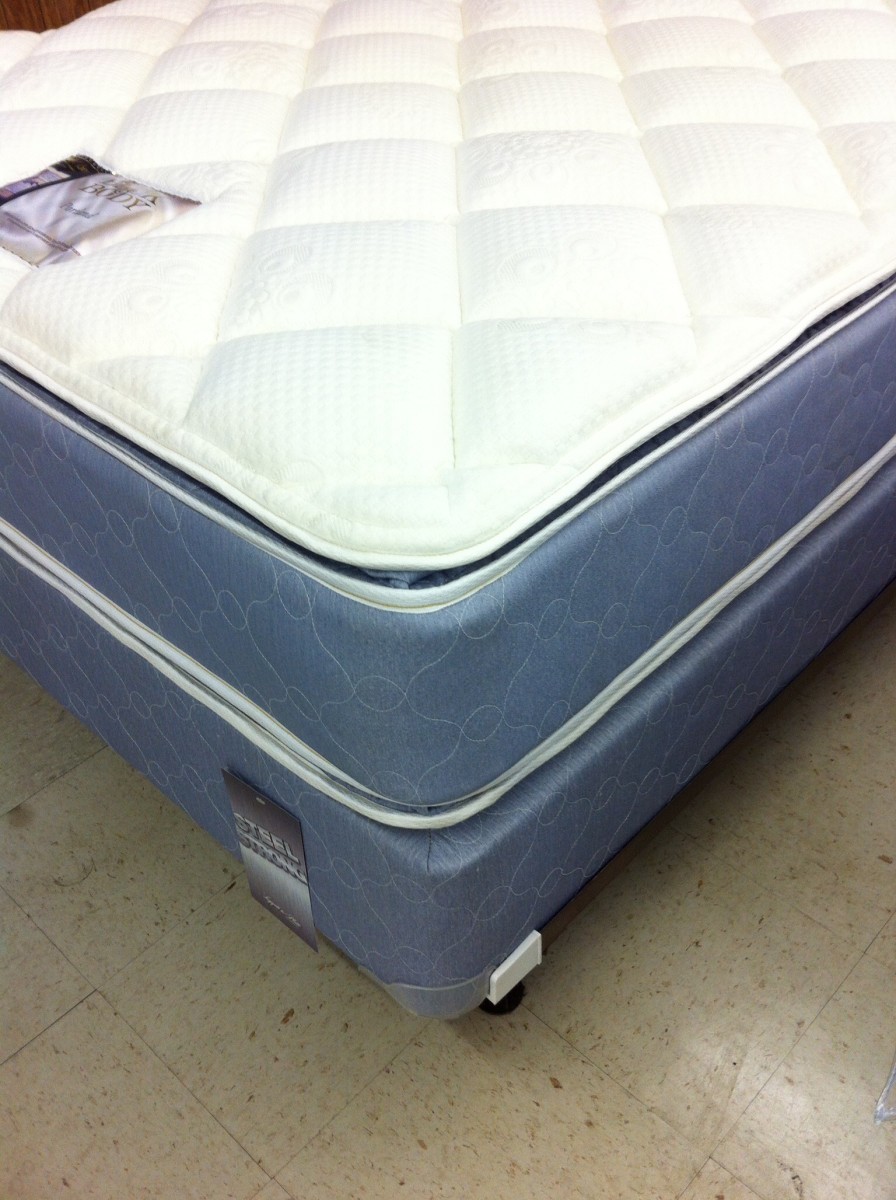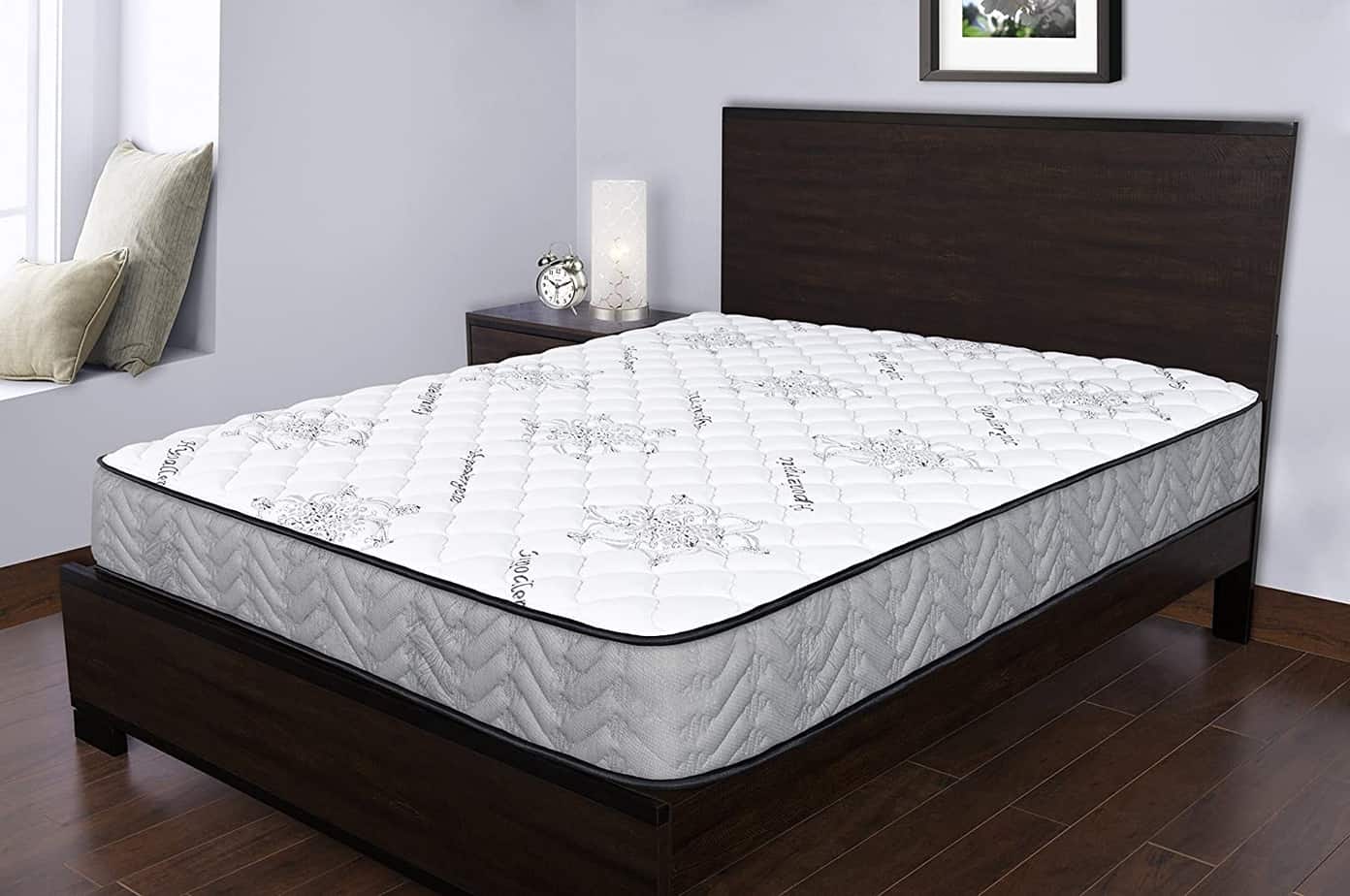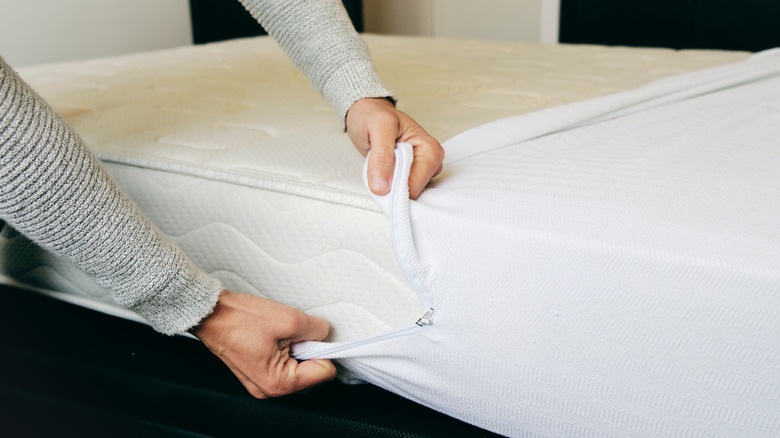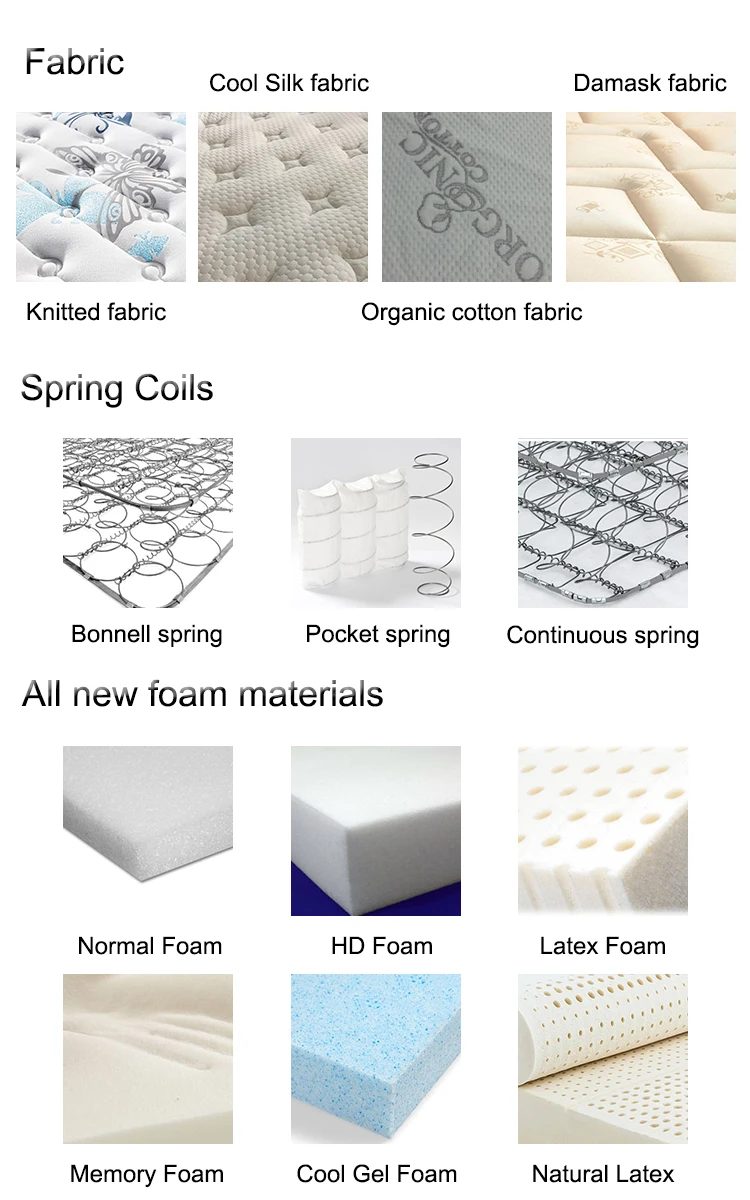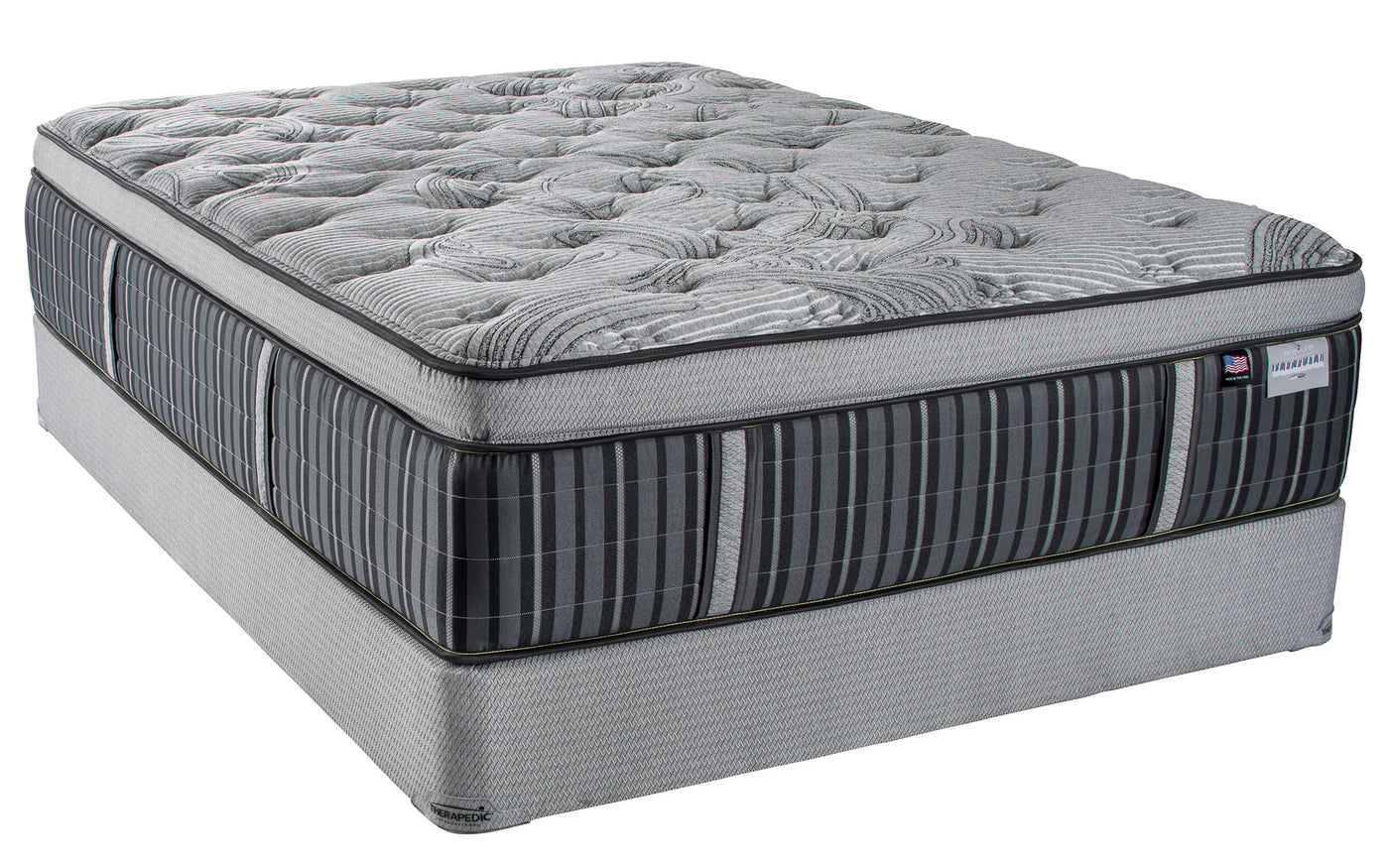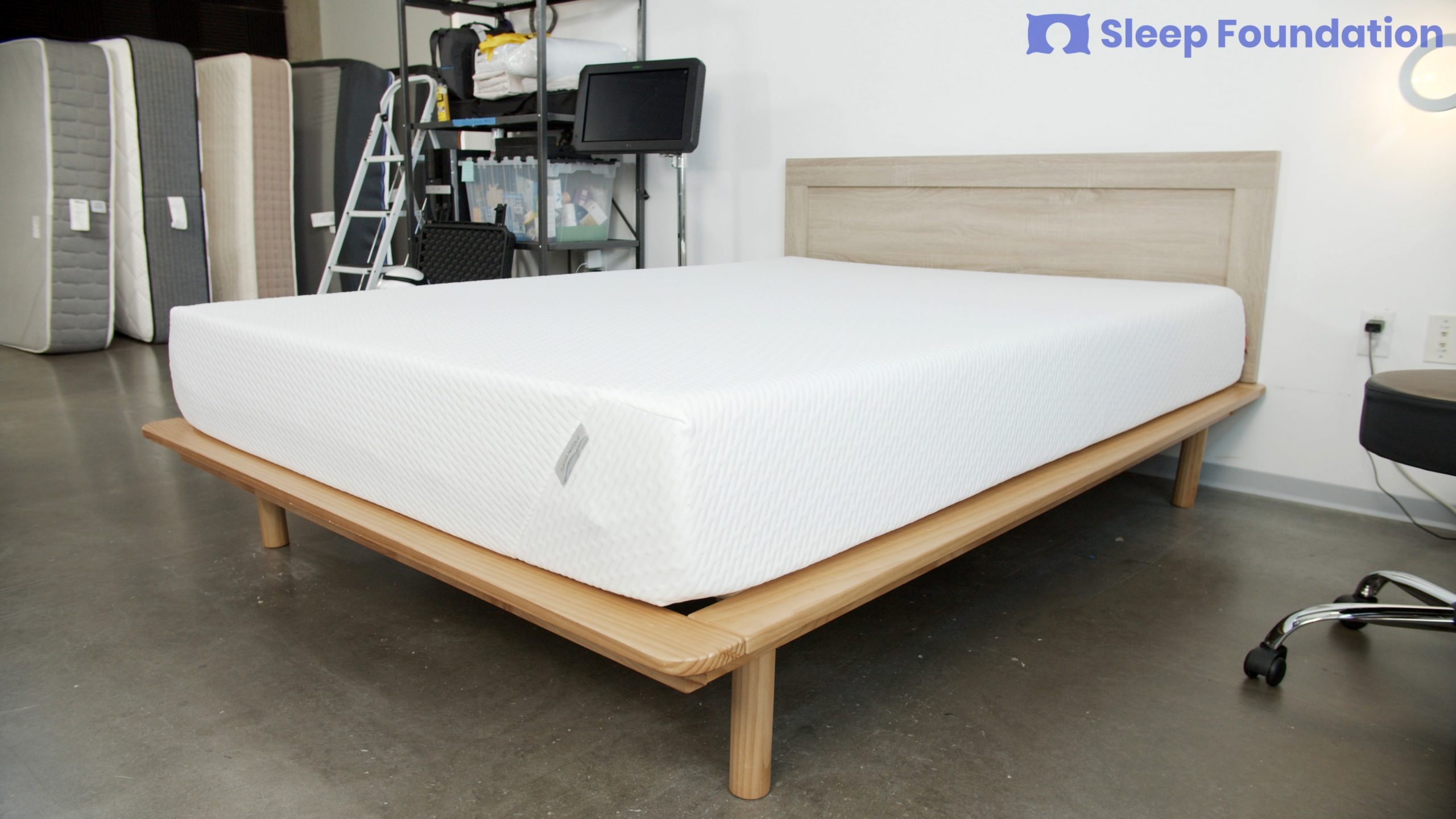Spring mattresses have been a popular choice for decades, offering a comfortable and supportive sleep surface. However, with the rise of other mattress types such as memory foam and latex, many people are left wondering if a spring mattress is still a good choice. In this article, we will explore the pros and cons of spring mattresses to help you determine if it is the right choice for you.Pros and Cons of Spring Mattresses
Before we dive into the pros and cons, let's first understand what a spring mattress is. A spring mattress, also known as an innerspring mattress, is made up of metal coils that provide support and bounce. These coils are then topped with layers of padding for added comfort. One of the biggest advantages of a spring mattress is its affordability. They tend to be less expensive than other mattress types, making them a great option for those on a budget. Additionally, spring mattresses are widely available, making it easy to find one that suits your needs. However, one of the main downsides of a spring mattress is its lack of pressure relief. The coils can create pressure points, especially for side sleepers, which can lead to discomfort and even pain. This is why it's important to choose a spring mattress with enough padding to cushion the coils. Another potential downside of a spring mattress is its durability. The coils can wear out over time, causing the mattress to lose its support and become lumpy. This can lead to discomfort and disrupted sleep. However, with proper care and maintenance, a spring mattress can last for 7-10 years.Spring Mattress Pros and Cons: Is it the Right Choice for You?
One of the main benefits of a spring mattress is its responsiveness. The coils in the mattress provide a bouncy surface that quickly responds to your movements, making it easier to change positions while sleeping. This can be especially beneficial for those who tend to toss and turn during the night. Additionally, spring mattresses tend to sleep cooler than other mattress types. The open structure of the coils allows for better airflow, preventing heat from getting trapped in the mattress. This can be a major advantage for hot sleepers. On the other hand, one of the biggest complaints about spring mattresses is their motion transfer. The coils can cause movement to transfer across the mattress, which can be disruptive to a sleeping partner. This can be a major issue for couples who have different sleep schedules or for those who are easily disturbed by movement. Another potential downside of spring mattresses is their noise. The coils can create a squeaky sound when pressure is applied, which can be bothersome for light sleepers. However, this can be avoided by choosing a high-quality spring mattress with properly constructed coils.Spring Mattress Pros and Cons: What You Need to Know
When it comes to choosing a mattress, memory foam is often pitted against spring mattresses. Memory foam mattresses are known for their pressure relief and conforming abilities, making them a popular choice for those with chronic pain. However, they also come with their own set of pros and cons. Memory foam mattresses offer superior pressure relief compared to spring mattresses. The foam contours to your body, distributing weight evenly and reducing pressure points. This can be a major advantage for those with back pain or joint issues. However, memory foam mattresses tend to retain heat, which can be uncomfortable for hot sleepers. They also have a slower response time, which can make it difficult to change positions during the night. Additionally, memory foam mattresses can be more expensive than spring mattresses.Spring Mattress vs Memory Foam: Pros and Cons
Another popular mattress type is the foam mattress, which can come in different forms such as polyfoam, latex foam, or memory foam. Foam mattresses offer excellent pressure relief and motion isolation, making them a great choice for couples. But like any other mattress type, they also have their pros and cons. Foam mattresses offer superior pressure relief compared to spring mattresses. The foam contours to your body, distributing weight evenly and reducing pressure points. This can be a major advantage for those with back pain or joint issues. Additionally, foam mattresses offer excellent motion isolation, meaning that movement on one side of the bed will not disturb the other. This can be a major advantage for couples who have different sleep schedules or for those who are easily disturbed by movement. However, foam mattresses can be prone to sagging, which can affect their durability. They can also retain heat, making them uncomfortable for hot sleepers. And depending on the type of foam used, they can be more expensive than spring mattresses.Spring Mattress vs Foam Mattress: Pros and Cons
Latex mattresses are made from natural or synthetic latex and offer a unique feel compared to other mattresses. They are known for their durability and pressure relief, but they also have their own set of pros and cons. Latex mattresses offer excellent durability, often lasting for 10-12 years. They also offer great pressure relief, contouring to the body and reducing pressure points. This can be a major advantage for those with chronic pain. However, latex mattresses can be expensive, especially if you opt for a natural latex mattress. They can also be heavy and difficult to move, making them less suitable for those who need to frequently relocate their mattress.Spring Mattress vs Latex Mattress: Pros and Cons
A hybrid mattress combines two or more mattress types, typically a spring mattress with another material such as memory foam or latex. They offer a balance of support and comfort, but they also have their own set of pros and cons. Hybrid mattresses offer a combination of the benefits of both spring and foam mattresses. They offer good support and responsiveness from the coils, as well as pressure relief and contouring from the foam layers. This can be a great option for those who want the best of both worlds. However, hybrid mattresses can be more expensive than traditional spring mattresses. They can also be heavier and may require regular rotation to maintain their shape and support.Spring Mattress vs Hybrid Mattress: Pros and Cons
Air mattresses, also known as adjustable air beds, use air chambers as the support system. They offer customizable firmness and can be a good option for those with specific support needs. However, they also have their own set of pros and cons. One of the main benefits of an air mattress is its customizable firmness. You can adjust the amount of air in the chambers to find your desired level of support. This can be especially beneficial for those with back pain or other support needs. However, air mattresses can be prone to leaks, which can affect their durability. They can also be quite expensive, especially if you opt for a high-quality model with multiple air chambers.Spring Mattress vs Air Mattress: Pros and Cons
Waterbeds, as the name suggests, use water as the support system. They offer a unique feel and can be a good option for those with specific support needs. However, they also have their own set of pros and cons. One of the main benefits of a waterbed is its customizable support. You can adjust the amount of water in the mattress to find your desired level of firmness. This can be especially beneficial for those with back pain or other support needs. However, waterbeds can be heavy and difficult to move, making them less suitable for those who need to frequently relocate their mattress. They also require regular maintenance to prevent leaks and ensure proper support.Spring Mattress vs Waterbed: Pros and Cons
Adjustable beds have become increasingly popular in recent years, offering customizable positioning for sleeping, reading, and watching TV. They can be a good option for those with specific support needs, but they also have their own set of pros and cons. Adjustable beds offer customizable positioning, making it easier to find a comfortable sleep position. This can be especially beneficial for those with back pain or other medical conditions. They also allow for easier getting in and out of bed, which can be helpful for the elderly or those with limited mobility. However, adjustable beds can be expensive and may require a specific type of mattress to work properly. They can also be heavy and difficult to move, making them less suitable for those who need to frequently relocate. In conclusion, spring mattresses have their own set of pros and cons, just like any other mattress type. Their affordability and availability make them a popular choice, but their lack of pressure relief and potential for noise and motion transfer may be a turn off for some. It ultimately comes down to personal preference and needs, so be sure to consider all factors before making your decision.Spring Mattress vs Adjustable Bed: Pros and Cons
The Pros and Cons of Spring Mattresses: Exploring the Best and Worst of This Popular Bedding Choice
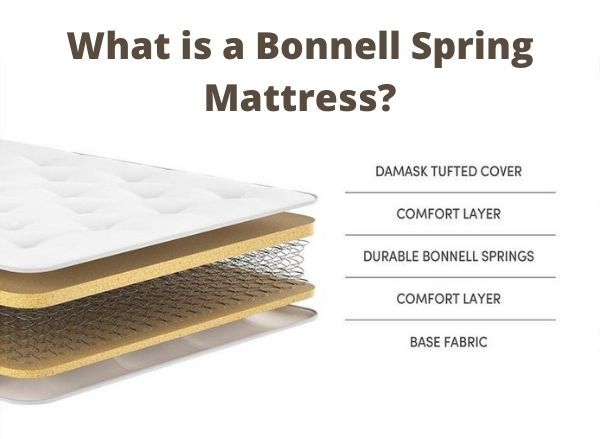
Pros of Spring Mattresses:
 When it comes to choosing a mattress, there are plenty of options to consider. One of the most popular choices is the spring mattress, also known as the innerspring mattress. This type of mattress has been around for decades and remains a top choice for many due to its unique features and benefits. Here are some of the pros of spring mattresses:
1. Affordable:
One of the main advantages of a spring mattress is its affordability. Compared to other types of mattresses such as memory foam or latex, spring mattresses are relatively inexpensive. This makes them a great option for those on a budget, or for those who don't want to spend a fortune on a mattress.
2. Supportive:
Spring mattresses are known for their ability to provide support to the body. The coils within the mattress evenly distribute weight and pressure, ensuring proper spinal alignment and reducing the risk of pressure points. This can be especially beneficial for those with back pain or other joint issues.
3. Temperature Regulation:
Unlike foam mattresses, which can trap heat and make you feel hot during the night, spring mattresses allow for better airflow and temperature regulation. This means you won't wake up feeling sweaty or uncomfortable, making for a more restful sleep.
When it comes to choosing a mattress, there are plenty of options to consider. One of the most popular choices is the spring mattress, also known as the innerspring mattress. This type of mattress has been around for decades and remains a top choice for many due to its unique features and benefits. Here are some of the pros of spring mattresses:
1. Affordable:
One of the main advantages of a spring mattress is its affordability. Compared to other types of mattresses such as memory foam or latex, spring mattresses are relatively inexpensive. This makes them a great option for those on a budget, or for those who don't want to spend a fortune on a mattress.
2. Supportive:
Spring mattresses are known for their ability to provide support to the body. The coils within the mattress evenly distribute weight and pressure, ensuring proper spinal alignment and reducing the risk of pressure points. This can be especially beneficial for those with back pain or other joint issues.
3. Temperature Regulation:
Unlike foam mattresses, which can trap heat and make you feel hot during the night, spring mattresses allow for better airflow and temperature regulation. This means you won't wake up feeling sweaty or uncomfortable, making for a more restful sleep.
Cons of Spring Mattresses:
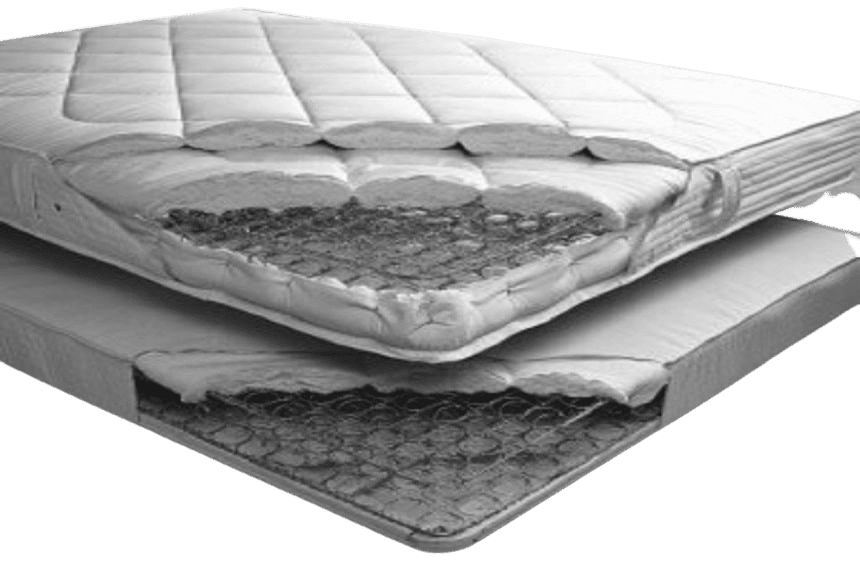 While spring mattresses have their advantages, there are also some downsides to consider. Here are some of the cons of spring mattresses:
1. Durability:
Spring mattresses tend to have a shorter lifespan compared to other types of mattresses. The coils can wear out over time, causing the mattress to lose its support and comfort. This means you may need to replace your spring mattress more frequently, which can add up in cost over time.
2. Motion Transfer:
If you're sharing a bed with a partner, you may be familiar with the issue of motion transfer. Spring mattresses tend to have more motion transfer compared to foam or latex mattresses, meaning you may feel your partner's movements during the night. This can lead to disturbed sleep, especially if you or your partner are light sleepers.
3. Noise:
Another common issue with spring mattresses is noise. As the coils compress and decompress, they can create squeaky or creaky sounds, which can be disruptive to sleep. This can also be a problem if you tend to move around a lot during the night, as it may wake up your partner.
In conclusion, spring mattresses have their pros and cons, and it ultimately comes down to personal preference. They offer a supportive and affordable option for those in need of a new mattress, but they may not be the best choice for everyone. Consider your needs and preferences before making a decision, and don't be afraid to try out different mattresses to find the perfect fit for you.
While spring mattresses have their advantages, there are also some downsides to consider. Here are some of the cons of spring mattresses:
1. Durability:
Spring mattresses tend to have a shorter lifespan compared to other types of mattresses. The coils can wear out over time, causing the mattress to lose its support and comfort. This means you may need to replace your spring mattress more frequently, which can add up in cost over time.
2. Motion Transfer:
If you're sharing a bed with a partner, you may be familiar with the issue of motion transfer. Spring mattresses tend to have more motion transfer compared to foam or latex mattresses, meaning you may feel your partner's movements during the night. This can lead to disturbed sleep, especially if you or your partner are light sleepers.
3. Noise:
Another common issue with spring mattresses is noise. As the coils compress and decompress, they can create squeaky or creaky sounds, which can be disruptive to sleep. This can also be a problem if you tend to move around a lot during the night, as it may wake up your partner.
In conclusion, spring mattresses have their pros and cons, and it ultimately comes down to personal preference. They offer a supportive and affordable option for those in need of a new mattress, but they may not be the best choice for everyone. Consider your needs and preferences before making a decision, and don't be afraid to try out different mattresses to find the perfect fit for you.


